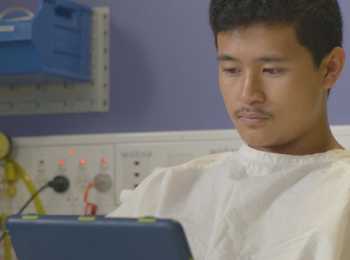Diversity and Inclusion
We are guided by our values and commitments to ensure that everyone at Canteen feels respected, included and safe. We welcome the LGBTQI+ community and people from all cultures, backgrounds and abilities.
When you’re born with intersex variations
The term intersex refers to people who are born with genetic, hormonal or physical sex characteristics that do not fit neatly with the medical or social norms for male and female bodies. These variations of sex characteristics may be apparent at birth or much later. There are at least 40 known variations and may include complete androgen insensitivity; 46,XY complete gonadal dysgenesis (Swyer syndrome); and 47,XXY (Klinefelter syndrome).
Having an intersex variation is about biological features (such as sexual anatomy, reproductive organs, hormonal patterns and/or chromosomal patterns) and not your sexual orientation or gender identity. Intersex people have a diverse range of genders and sexualities.
Knowledge in the community about intersex variations is still developing, and some people will not have heard of intersex variations or differences in sexual development. This can result in misconceptions and assumptions about what being intersex means and what intersex people need.
You don’t need to tell your health professionals that you have an intersex variation, but knowing this may help them give you the information that is right for you. And depending on the type of cancer you are diagnosed with, knowing about your intersex variation may help guide your care and treatment.
Treatment for cancer may bring back memories of any previous medical experiences you’ve had, and you may find this upsetting. If you haven’t felt in control of decisions about your body, let your health professionals know that it’s important that you are involved in decisions about your treatment. You can help with building trust with your healthcare team. For more information on your rights at the doctor, see our helpful guide at canteen.org.au/lgbtqi-rights.
If you have a variation of sex characteristics and also identify with the LGBT communities, see our helpful guide LGBTQ+ and cancer - Unique health needs and common concerns.
For more information and support, visit Intersex Human Rights Australia.
Canteen Confirms Support for the Darlington Statement
This Intersex Awareness Day, October 26, 2025, Canteen is proud to formally affirm the Darlington Statement. We stand with intersex young people in advocating for bodily autonomy, self-determination, and the right to live free from unnecessary medical interventions. Our Diversity and Inclusion efforts intentionally include the intersex community, reflecting our belief that every young person deserves respect, choice, and care throughout their cancer journey.


















